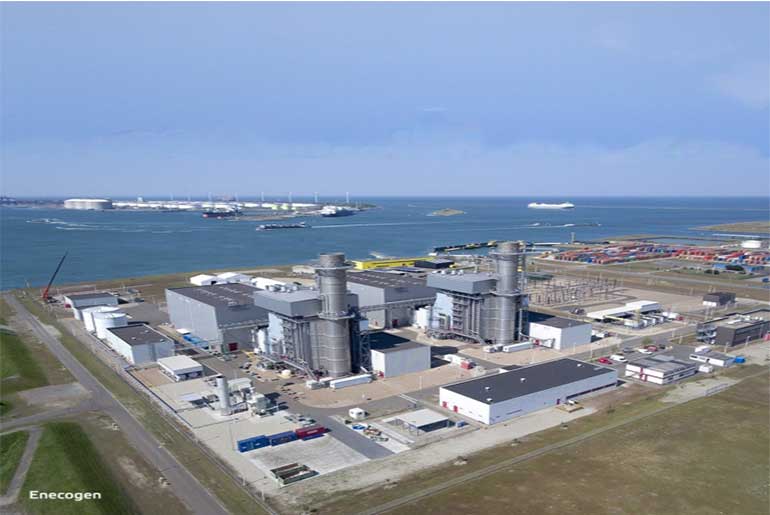EP NL and ENECO are realizing a large-scale battery project at ENECOGEN’s Europoort power plant, in which both parties hold a 50% stake. The battery will have a connection capacity of 50 MW and an energy storage capacity of 200 MWh, enabling it to supply electricity for four hours. This will provide more flexibility for the Dutch electricity system when the battery is put into operation in 2027.
Battery storage enables electricity to be stored when there is more available than is needed, for example, when a lot of solar and wind energy is generated. This stored electricity can then be delivered precisely when demand exceeds the available green power. This ensures that the production of green power is restricted less frequently. Additionally, price spikes are smoothed out, and the battery can be used to reduce grid congestion.
ENECOGEN is responsible for maintenance and operations. The EP NL and ENECO trading departments control the battery.
Batteries are indispensable, and acceleration is necessary.
Batteries are indispensable for the energy transition. Yet the development of battery projects in the Netherlands lags behind that in other countries. This is because batteries in the Netherlands have to pay to take power from the grid. While the battery at the ENECOGEN power plant has the advantage of using the existing grid connection, grid costs often present a bottleneck to the profitability of battery projects. While the possibility of entering into a time-dependent transportation contract and thus getting a discount on the grid tariff is important, it is not enough to offset the Netherlands’ lag in the battery field. Therefore, the Netherlands should apply an exemption from the net tariff for batteries, as they do in Germany and Belgium.
Karen de Lathouder, COO Assets ENECO: “It’s fantastic that we can invest in this new battery, which is a breakthrough after years of development. At the same time, it’s a shame that this is only the Netherlands’ first homegrown battery. We are still miles away from achieving the battery capacity required in the Netherlands to prevent power shortages and grid congestion, as well as reducing emissions from our energy system sufficiently. As in Belgium and Germany, batteries in the Netherlands should be exempt from grid charges to enable this acceleration.”
Martin Bartošovič, CEO of EP NL: “This collaboration demonstrates how market knowledge, technological innovation and partnership come together in a concrete project that directly contributes to a more stable and sustainable energy system. By investing in this battery, we are investing not only in flexibility but also in the future of the Dutch energy supply.”
Batteries mainly provide short-term flexibility, but they are not the only link in a future-proof electricity system. Long-term flexibility is also needed. With the sharp increase in solar and wind power, controllable power plants run less and less frequently, and investment in them is increasingly difficult. But they are still needed for times when there is little solar and wind available. Therefore, a capacity mechanism is needed to secure this long-term flexibility in our power supply. Both tracks reinforce each other and are necessary for a stable energy supply.



